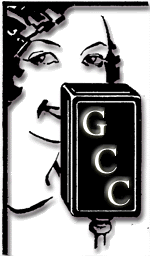This article isn't intended to be legal advice, but rather an intro to understanding the copyright laws you might trip over during your career. My goal, as both an author and a lawyer, is to prevent you from tripping altogether, or at least give you some info to help break the fall. (For serious questions, always consult an attorney.) {Note: At the time this article was written, I was working as an attorney full-time.}
Who Has a Copyright?
You do, so long as youve written something. Years ago, copyright protection required registration. That is no longer the case. Now, your work is immediately copyrighted the moment it comes into existence. While it is no longer necessary to include a copyright symbol (which I have no idea how to insert into a blog, but you know it: the circle with a c inside) there are a variety of reasons why it is still a good idea to include that symbol, your name and the date. For example, by doing so, you will be helping to refute a later claim by a copier that the infringement was innocent.
Why Bother Registering?
Why have you (or your publisher) been bothering with all those tedious copyright forms (and fees)? Because registration is a prerequisite to recovering certain damages if someone infringes your work. Without getting into too much detail, the general rule is that without registration, you can recover only actual damages (money that you can prove you lost because of the infringement). That can be hard to prove. But if youve promptly registered, and if you prove infringement, you are entitled to recover damages within certain limits set by statutewithout having to prove you actually lost a dime.
Do I Own the Copyright or Does My Publisher?
Copyrights are property and can be transferred just like your house or car. So its possible that someone else could own the copyright on something you wrote. Generally, however, you own the copyright, and you assign to a publisher a bundle of rights that fall under you copyright, such as North American rights, foreign rights, book club rights, etc. Also, if you are an employee and part of your job is to create written material, it is possible that your work falls within a particular category that makes it a work-for-hire, and your employer owns the copyright. Remember that you cannot orally transfer all of the bundle of rights that comprise copyright. Some of these rights may be transferred only in writing.
I Have This Idea about a Guy and a Girl
An idea is not copyrightable. So if you mention to your friend who works in Hollywood your idea about a girl who falls in love with the man of her dreams after hearing him on a radio talk show, and a year later Sleepless in Seattle hits the screen, you don't have a copyright claim. (You might have another type of claim, however.) While an idea isnt copyrightable, the tangible expression of that idea is. For writers, that means the specific words on the page that make up the way you tell your idea --in other words, your story, or even the plot line or character treatment, if sufficiently developed.
So a Million Monkeys Banging on a Million Typewriters ?
Copyright is different from trademarks and patents. Like the name suggests, copyright requires copying. If someone really does come up with an identical idea (and text) entirely on his own, there's no copyright infringement. In fact, in order to prove copyright infringement, you have to prove that the defendant had access to your material. This is different than the law of trademarks. If I've been living in a cave all my life, open a web-based business, and decide to use a logo that looks like two golden arches or to call my company Microsoft, I'll have problems even if I've never seen a McDonalds or heard of Bill Gates company. Similarly, if I invent a widget, but the widget has already been patented, the patent-holder can prevent me from manufacturing my widgeteven if I didn't copy his widget, and even if the patent holder has no desire to manufacture widgets himself. In copyright, it's different. So if our million monkeys coincidentally cranked out the latest John Grisham novel, there would be no copyright infringement (unless maybe the monkeys were reading Grisham during their lunch breaks).
This Is Just Fascinating. How Can I Learn More?
If you want basic information on copyright, you can call the U.S. copyright office at (202) 707-3000, or visit the website at http://lcweb.loc.gov /copyright. If you think you may have a legal issue, the best thing you can do is consult a lawyer. If cost is your concern, contact the local or state bar association. It may be able to refer you to a lawyer who does low or no-fee work for artists and writers.
(I wrote this article in 2001 ... please note that it hasn't been updated. Like the article says: hire a lawyer if you have concerns!)
Thursday, February 1, 2007
Subscribe to:
Post Comments (Atom)








No comments:
Post a Comment